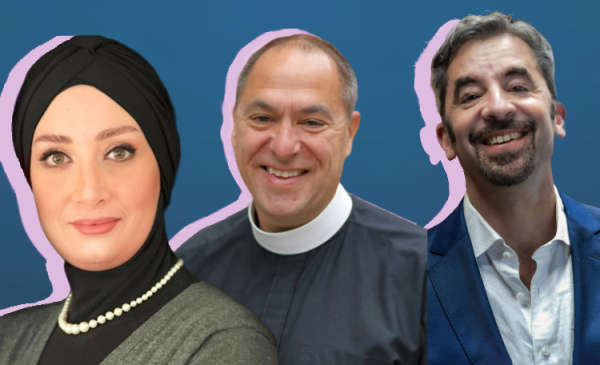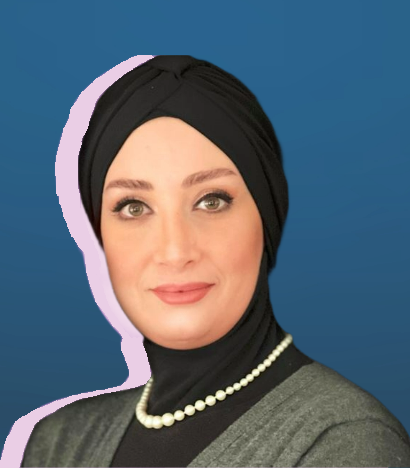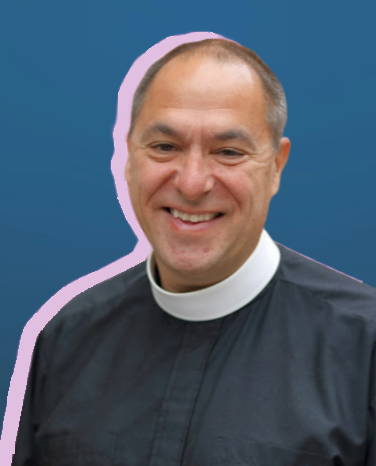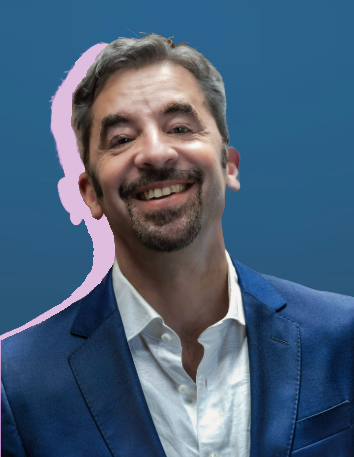
Living in Minnesota, 6,173 miles away from her family, Palestinian American Raghda Skeik has watched the land where she grew up crumbling to the ground. Skeik is an artist based in Minnetonka, and every day, she feels the effects of the devastating Israel-Hamas war.

“I question where my family is: are they under the ground or above the ground?” Skeik said.

Pastor Bradley Schmeling from Gloria Del Luthern Church recalls the moment he heard about the war. He made sure to include the people of Palestine and Israel in their prayers.
“One of the primary ways we love God is by loving our neighbors, and our neighbors are both Israeli and Palestinian,” Schmeling said.
Skeik emphasizes that the Israel-Hamas war is not a war or a conflict: “It’s a genocide. It’s not a war because you don’t have the same equal parties,” she said.
While Skeik is a full-time artist, she also has a nursing degree. After sustaining an injury in her back, preventing her from working full-time, she decided to work as a nurse only for medical missions or as a volunteer. She recalled the last time she spent in Gaza as a surgeon in 2023 before Oct. 7. Skeik had to perform surgeries on tables because of how full hospitals were. She covered windows with sheets for privacy, and the biggest struggle was having no more than four hours of electricity in a day.
One surgery has stuck with her since: “In the middle of a surgery, the electricity went out. What did we do?”
“[The] patient [held] his cell phone with a flashlight to finish the surgery on his leg,” Skeik said.
From her experience in Gaza before the Israel-Hamas war, Skeik compared it to the Israeli state “with a huge, massive military, and access to weapons from all over the world, especially [from] the US.”
“It’s not equal,” she said.
Schmeling said, “I can be compassionate and loving towards people and communities and at the same time say that political-military leadership is wrong in how this has occurred.” He believes that religion can coexist with individual political beliefs.

One of the most flawed arguments to come out of this war is that it is a clash of religions: Islam and Judaism. Rabbi Adam Spilker believes this shouldn’t be the case.
“At Mount Zion, I teach that this is not about choosing sides. We are on the side of humanity; we mourn all deaths,” Spilker said. “The most human, the most religious response, is to support all peoples seeking freedom from suffering, freedom of self-determination.”
Skeik agrees: “My religion as a Muslim is [intended to] to extend my hand and help anybody from any faith…[and] to stand with human beings.”
However, Skeik draws a distinct line between Jews and Zionists. Zionists are Jews who believe in the creation of a Jewish national state within Palestine. While all Zionists are Jews, not all Jews are Zionists.
“I’m not against the Jews living on the land because we’ve been existing forever together with no problems. But when it comes to Zionism, then I have a problem with them because they have been stealing my whole life,” Skeik said.
Being born in 1982, Skeik was a child during the First Infantada. She remembers making bracelets that resembled the Palestine flag. She also remembers hiding them when Israeli soldiers came by to search her family’s house out of fear that they would arrest her family because of their support for their country.
While life was hard and sometimes scary in the Gaza Strip for Skeik, she still recalls the good times: “We grew up with Jews. I do remember my grandfather was telling us the stories that… they [would] bring their kids over [for us] to babysit them, and we [would] do the same thing.”
Skeik doesn’t believe in Islam vs. Judaism because she witnessed peace between members of the two religions since she was young.
Spilker thinks that religious polarization is more present in the U.S. than in Israel and Palestine. “[There], Muslims and Christians, Arabs and Jews have many organizations working together. Here, many folks feel they need to ‘pick a side,’ which is a false binary,” Spilker said. “[Israelis and Palestinians] want to live together, not die together.”
While religion is not the center of the conflict, it is not entirely separated from it.
“Israel is the only nation-state in the world where Judaism is normalized and central to day-to-day life,” Spilker said. He juxtaposed it to the Palestinian territories, saying, “[They] are among many in the world where Islam is normalized and central to…day-to-day life.”
“It seems like [real-world human interactions] are what we need right now…to connect with one another as human beings who are suffering and in pain and have lost a lot,” Schmeling said. He reads of Israeli and Palestinian experiences “expressing their pain, their yearning for peace” in hopes of showing solidarity and understanding. He calls it “voices of peace.”
“I had the privilege to bring my family out of Gaza,” Skeik said. “They refused to leave because this is the land they belong [to]. Even if they had the chance to leave, they would stay there. I would do the same.”
Seeing the war unravel, Skeik said, “It’s painful. We are not enemies.”
Additional reporting from Claire Kim and Orion Kim.